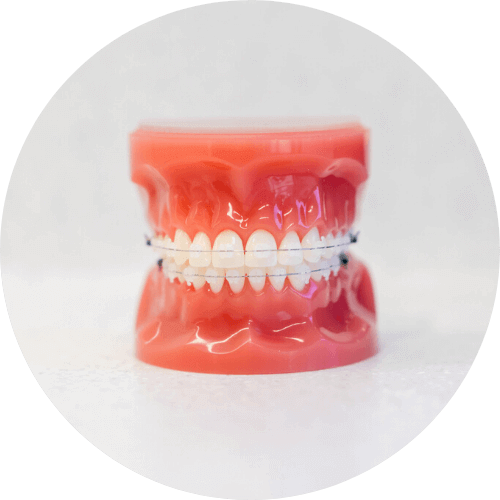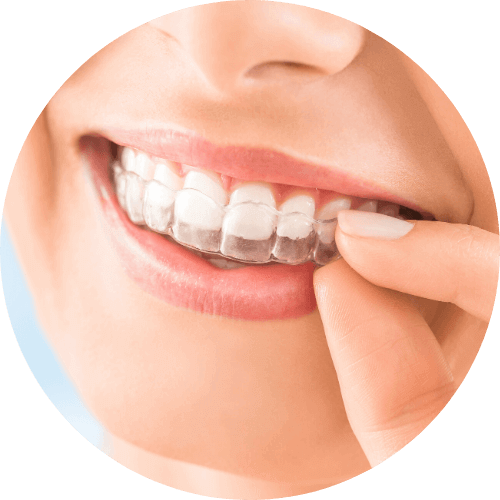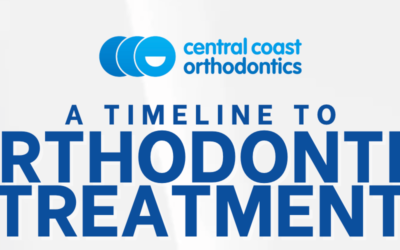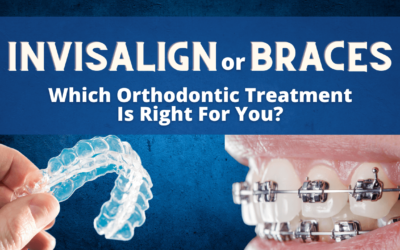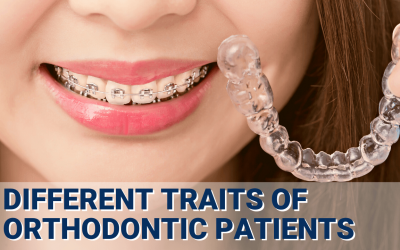5 Top Causes of Tooth Decay and How to Avoid Them

Avoiding Tooth Decay
No one wants to hear they have a cavity. But did you know decay can be caused by more than just a sweet tooth that could rival that of Augustus Gloop?
Here are the 5 top causes of tooth decay and, most importantly, how to avoid them.
1. Poor Diet
A poor diet, namely one high in sugars and starches, is one of the leading causes of tooth decay. Bacteria found in the mouth have a sweet tooth of their own and they happily chow down on the simple carbohydrates found in these foods. As they take in these carbs they produce acids that soften and break down the protective enamel layer of the teeth, causing tooth decay.
White bread products, crackers, cakes, cookies, gummy candies, dried fruits, and chips have the tendency to turn into a sticky substance as they are broken down through chewing—clinging to any nook, crack, and cranny of the teeth. These lingering sticky food particles can be thought of as an all-you-can-eat buffet for those sugar-loving, acid-producing bacteria.
Beverages such as sodas, energy drinks, black tea, coffee, and fruit juices also contribute to tooth decay as they wash over teeth in a sugary, acidic bath with each sip. Drinks like these are usually savoured throughout the day, and this continuous consumption prevents the enamel from rehardening after being exposed to damaging acids—making the breakdown of the enamel layer, and thus tooth decay, inevitable.
What to Do Instead
You don’t need to avoid these foods and drinks altogether; however, moderation is key. Monitor the amount of added sugars you consume each day and make a plan to cut back where necessary. Drink water after meals and after drinking other beverage types to wash away food particles and bacteria. Chewing sugar-free, ADA-approved gum after meals and drinks also helps by increasing saliva production to flush away lingering food particles and bacteria.
2. Poor Dental Hygiene Habits
Yes, the rumours are true. Not following a consistent dental hygiene routine is one of the lead causes of tooth decay. And when it comes to this bad habit, it’s not a matter of if, but when.
Inadequate brushing and flossing, which can look like not brushing frequently, thoroughly, or long enough—or worse, neglecting to do them at all—allows food particles, harmful bacteria, and plaque to remain on the surface of the teeth. Left to linger, they become a constant source of damage to the enamel layer. Unable to re-harden after being softened by acids from foods and bacteria, this strong protective layer is continuously broken down forming a larger and larger cavity.
What to Do Instead
Brush gently for two minutes twice a day using a fluoridated toothpaste and a soft-bristled brush. Set a timer to ensure you get at least a full two minutes of brushing or invest in a rechargeable electric toothbrush—most come with a built-in timer feature. To get between the teeth where a brush can’t reach, floss once a day with string floss. Using an 18-inch strand wound about the fingers leaving around an inch or two of working space, gently work the string in a C-shape around the neck of each tooth.
3. Dry Mouth
You might find the thought of drool and saliva disgusting but they have an important role to play in maintaining oral health, including preventing tooth decay. Saliva keeps the mouth moist, aiding in the breakdown and washing away of food particles. It also acts as a strengthener and protector of the teeth against both plaque and acids.
Not drinking enough water causes dehydration and, in turn, a dry mouth. Caffeinated and alcoholic beverages are particularly dehydrating—this becomes problematic when habitually consumed and not balanced out with sufficient water intake to rehydrate. Habits like smoking and mouth breathing also dry out the mouth. Some medical conditions and medications can also cause dry mouth.
What to Do Instead
Drink plenty of water throughout the day to stay properly hydrated. Chewing sugar-free, ADA-approved gum can help to increase saliva production. Dry mouth as a result of habits such as drinking coffee or alcohol, smoking, or mouth breathing can be managed by working towards either altering or eliminating these habits over time.
Talk to both your doctor and dentist to find a treatment plan to manage symptoms that are a result of a medication or medical condition. You may be prescribed an oral rinse or medication that works to boost saliva production. Your doctor may decide to alter any medication that is resulting in dry mouth. Your dentist will closely monitor your oral health and how it is impacted by dry mouth over time, offering proactive steps to protect your teeth from dental decay.
4. An Untreated Medical Disease or Disorder
Leaving a medical disease or disorder untreated can have far-reaching consequences—ones that impact more than just the area of the body the condition directly affects.
For example, sleep disorders such as snoring and sleep apnea do not just affect your and your partner’s quality of sleep. Both also lead to dry mouth as the sufferer struggles to breathe—continuously taking harsh, drying inhales through the mouth during sleep. Another sleep-related disorder, bruxism, is the habitual grinding of the teeth. Severe bruxism can result in wearing teeth down to mere stumps. As the teeth are worn down, so too is the protective enamel layer, in turn increasing the likelihood of tooth decay occurring.
What to Do Instead:
Seek treatment as soon as possible. If you know you have any of these disorders, you should inform both your doctor and dentist. They will help you find the best course of action to either manage or treat both the symptoms and side effects.
Those that suffer from sleep apnea, snoring, or bruxism may be prescribed an oral device or bite splint for nightly wear. Other ways you can curb symptoms include avoiding sleeping lying on your back, starting a regular exercise routine, and refraining from drinking alcoholic beverages two hours before sleep.
5. Putting Off Visits to the Dentist
Putting off a visit to the dentist may seem like a good idea for the short-term—especially to those who feel they can’t afford the cost of treatment or feel less than enthusiastic about a visit. However, putting off a trip to the dentist can turn a small restoration into one that is far larger, more expensive, and time-consuming.
During a routine cleaning, any plaque or tartar that may have accumulated on the surface of your teeth is removed and your dentist checks for any signs of decay. This is also the time your dental team will give you feedback on the effectiveness of your brushing routine. They can tell you which areas of your mouth require more attention to avoid future decay from developing. And since decay isn’t always felt or even easily seen, it’s important to have these regular visits for early detection.
What to Do Instead
Focus on eliminating the top causes of tooth decay from your life. Visit the dentist at least once a year for an exam and prophylaxis cleaning. Find a friendly, caring dental team you enjoy visiting. No news truly is good news! Even if you regularly get a thumbs up that all is well each time you have an examination, you should still make routine visits a yearly priority to maintain your outstanding oral health over time.
Click here to see the original article.
DISCLAIMER:
The content has been made available for informational and educational purposes only. Central Coast Orthodontics does not make any representation or warranties with respect to the accuracy, applicability, fitness, or completeness of the content.
The content is not intended to be a substitute for professional personal diagnosis or treatment. Always seek the advice of your dentist or another qualified health provider with any questions you may have regarding a dental or medical condition. Never disregard professional advice or delay seeking it because of something you have read or seen on the Site.
Learn More About
Related Articles
A Timeline To Orthodontic Treatment
Embark on your smile journey with Central Coast Orthodontics! Orthodontic timeline takes you through each step of your transformation…
Invisalign or Braces: Which Orthodontic Treatment is Right For You?
Unsure which is the best orthodontic treatment for you? This infographic may help you compare the differences between Invisalign and Braces..
New Year Goals for a Healthier Smile
As we enter the year 2023, let’s start better habits for maintaining an optimum oral health. Read today’s infographic to know more about it..
Different Traits of an Orthodontic Patient
Do you know that even if you go for an orthodontic treatment, there’s no guarantee that your treatment would be successful? This is because there are different traits an orthodontic patient has, so which one are you?

